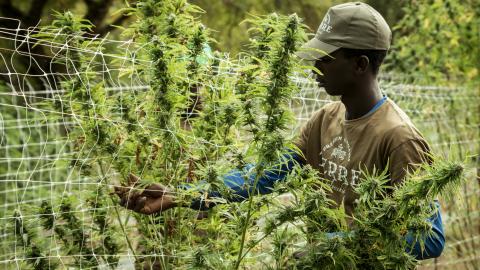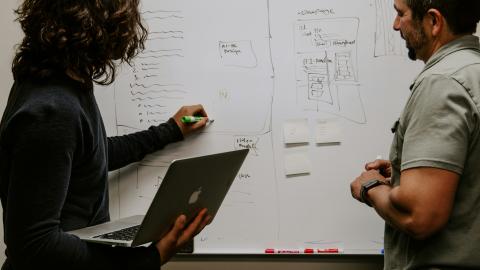
November 18, 2021
The coronavirus (COVID-19) pandemic has accentuated modifiable individual, social and environmental factors perpetuating health disparities among vulnerable working populations. Hotel room cleaners who remain employed during COVID-19 face increased vulnerability above and beyond their already existing workplace stress.

Through a community-based participatory approach, Dr. Marie-Anne S. Rosemberg and her team aim to understand hotel workers’ experience during COVID-19 and identify and address their needs relating to mental health and substance use. Her study, “Strengthening Sustainable Community Partnerships to Address Poor Mental Health and Substance Misuse Among Workers in Michigan During Covid-19 and Beyond” is funded by the BlueCross BlueShield Foundation of Michigan.
COVID-19 has amplified the workers’ vulnerability because of their identities (i.e. women, racial/ethnic minorities, and low income) and systemic related factors. We know that workers who experience high stress are at risks for poor mental health and are at risk for substance misuse. We lack empirical data to capture how the COVID-19 added stress impact mental health and frequency and uptake of substance use. At the end of this two-year mix-method study, Dr. Rosemberg and her team will have prioritized needs, and developed intervention protocols to promote mental health and redress substance use concerns among this population.
With support from the NWCOHS, Dr. Rosemberg graduated in 2012 with a PhD in Occupational and Environmental Health Nursing. She is now an Assistant Professor in the Department of Systems, Populations and Leadership, School of Nursing, at the University of Michigan. Her research focuses on addressing occupational health disparities and inequities among youth and adult working populations at risk for or experiencing one or multiple chronic conditions.
Learn more about Dr. Rosemberg’s other work on this CDC NIOSH Science Blog post, The Role of Demographics in the Future of Work and associated webinar, The Role of Demographics in the Future of Work, from the NIOSH Future of Work Webinar Series.
Cover photo credit: AdobeStock: Erkan; hedgehog94; Friends Stock; navee




